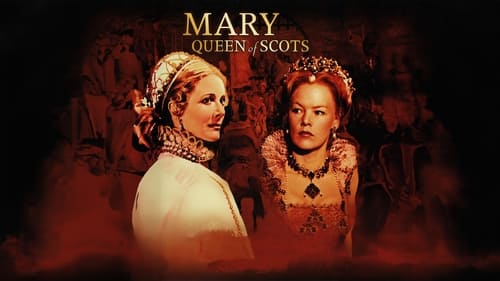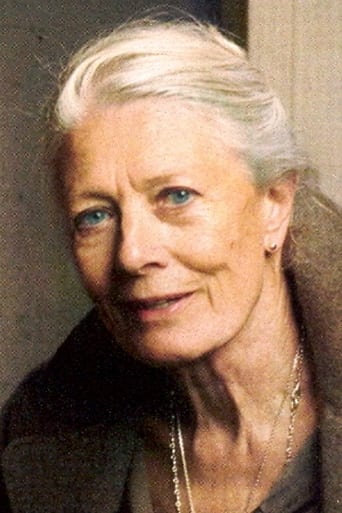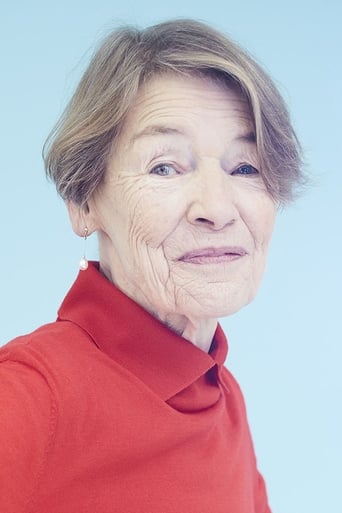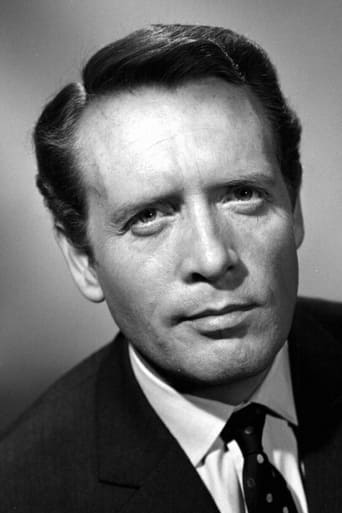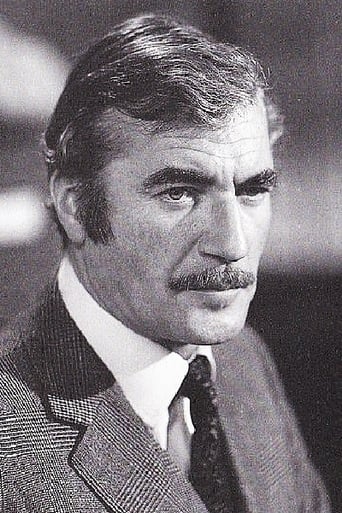Dorathen
Better Late Then Never
Doomtomylo
a film so unique, intoxicating and bizarre that it not only demands another viewing, but is also forgivable as a satirical comedy where the jokes eventually take the back seat.
Matho
The biggest problem with this movie is it’s a little better than you think it might be, which somehow makes it worse. As in, it takes itself a bit too seriously, which makes most of the movie feel kind of dull.
Scotty Burke
It is interesting even when nothing much happens, which is for most of its 3-hour running time. Read full review
Maddyclassicfilms
Mary Queen of Scots is directed by Charles Jarrott, has a screenplay by John Hale, has music by John Barry and stars Vanessa Redgrave, Glenda Jackson, Trevor Howard, Nigel Davenport, Timothy Dalton, Raymond Massey, Patrick McGoohan and Ian Holm.The young Queen consort of France Mary(Vanessa Redgrave),is taken from France to Scotland to become Queen there after her husband dies.Mary is aided by an Italian spy David Riccio(Ian Holm)and the Scottish Lord Bothwell(Nigel Davenport). Bothwell is very blunt and is a man of action, he becomes totally loyal to the Queen and falls in love with her.Mary poses a threat to the English Queen, Elizabeth Tudor (Glenda Jackson). Both women want to be ruler of the country but in the end only one will keep her throne. Mary learns too late that to be a great Queen one must give up their inner self, sacrifice their own desires for the good of their country and their duty. Mary rules with her heart whereas Elizabeth rules with her head and is dominated by no consort, her decisions are completely her own.Elizabeth sets a trap for Mary in the form of Henry Lord Darnley (Timothy Dalton)and her own great love Lord Robert Dudley (Daniel Massey). Elizabeth's friend and adviser Lord Cecil (Trevor Howard)urges her to have Mary killed because she is too great a threat, Elizabeth won't do that and insists another way be found to stop her.The entire cast are excellent with Vanessa and Glenda giving the standout performances. Vanessa excels at conveying the innocence and sheltered nature of Mary, when she arrives in Scotland she has to become tougher and stronger and it isn't easy for her. Glenda's portrayal of Elizabeth is as good here as in the TV miniseries Elizabeth R, her Elizabeth is strong, fearless, intelligent, charming and cunning. The growing love between Mary and Bothwell is beautifully portrayed with him providing some comfort and safety that the Queen desperately needs. Davenport gives one of his best performances as Lord Bothwell and I missed him when he wasn't in a scene.The costumes are beautiful and John Barry's score is one of his very best.
eyesour
Nice castles. Nice scenery. Pity about the phony accents, acting, writing, direction. The story of the wretched and unfortunate Mary is one ghastly never-ending muddle and mess, end to end. I never did manage to sort out the ramifications of her dealings with the Catholics and Protestants, the King of France, Darnley, Bothwell and Rizzio, not to mention her half-brother, and this screenplay is no help. It is talkative, and presumably this is why Mary and Elizabeth are presented as meeting not once but twice, but very little is made clearer by these silly, pointless, fictitious encounters.The actors come across as puppets pulled around by strings, spouting unconvincing artificial dialogue. Vanessa is far too physically angular, and unsympathetic, to play Mary; Glenda looks unwell throughout. McGoohan seems unusually constipated. None of these characters, Darnley, Bothwell, and so on seem at all real, let alone royal. Anyone less likely to go mad than Nigel Davenport is difficult to imagine. This is not a good film. Five Oscar nominations ? Incredible. Trevor Howard wasn't too bad. All the other Tudor film histories are better than this one.
bkoganbing
The tragedy of Mary Stuart of Scotland is that she never could put boundaries between her heart and her needs and the necessity of sacrificing those for the realm you rule. This is the contrast that so many writers have been fascinated with, the contrast between her cousin and rival Elizabeth of England.Mary, Queen of Scots has the story start where it properly belongs in France where the Queen Consort of the sickly Francis II has two deaths happen to her which forever alter her life. Her husband the king and her mother Mary Of Guise who has been ruling Scotland as regent for her daughter. At the same time Mary attains her majority and decides to rule in Scotland as her mother-in-law Katherine Kath playing Catherine DeMedici really doesn't want her around.Her brothers the Duke of Guise and Cardinal Guise belonged to a family that was described as more Catholic than the Pope. They were real big on stamping out the Protestant heresy which was growing on the British Isles. Her mission was bring back the old religion.Like John Ford's Mary Of Scotland the film turns on the performances and rivalries Vanessa Redgrave as Mary and Glenda Jackson as Elizabeth. Katharine Hepburn and Florence Eldridge played Mary and Elizabeth in the Ford film and Redgrave and Jackson are every bit their equal. Jackson in fact probably made Elizabeth I her career role because this same year she starred in a six part mini-series for the BBC, Elizabeth R. The story of Mary and Elizabeth is part of that as well.Mary made her decisions impulsively and was as likely to consult her hormones before her gray cells. She married three times first to Francis (Richard Denning), then Lord Darnley played by Timothy Dalton, and finally and most impulsively Lord Bothwell played by Nigel Davenport who threw his own wife out. Each was a different type of man, but all the marriages ended disastrously. With Darnley she gave birth to James who became James VI of Scotland and eventually James I of England.Elizabeth on the other hand had her passions, but her realm always came first. Glenda Jackson is quite the calculating machine, her scene with Trevor Howard as her chief minister William Cecil where she sends both Dalton and her lover Daniel Massey as Robert Dudley later Earl Of Leicester to Mary and explaining how if Mary chooses either, she Elizabeth will wind up a winner. We call it a win/win situation six centuries later, but Elizabeth was a tough survivor and was lucky to be Queen. That took an incredible combination of circumstances and to get an idea about that one should see the Jean Simmons film, Young Bess.The smartest guy in the film is Patrick McGoohan who plays the Earl Of Moray. He was Mary Stuart's illegitimate half brother, a tried and true Protestant, but knew how to play the religious and political game which blended so often in that and the next two centuries. If Mary had listened to him, she'd have died a Queen although maybe without all the royal prerogatives.Mary, Queen Of Scots's story has been told on stage, screen, and even the grand opera. It's one about human frailty and losing all for love and every human on planet earth can identify with that. This telling of the story of Mary, Queen Of Scots is a good one, but by no means will be the last.
blanche-2
Vanessa Redgrave is "Mary, Queen of Scots" in this 1972 film which stars Glenda Jackson, Patrick McGoohan, Timothy Dalton, Ian Holm and Nigel Davenport. What a pity that young people today don't have a chance to see the great Jackson, who has retired, or Redgrave, who no longer plays leads in films. These two women are powerhouses playing two completely different types of women - Elizabeth (Jackson) is powerful, distrusting and manipulative, while vulnerable, sensitive Mary is in way over her head.The story covers the death of Mary's husband in France and her arrival in Scotland to be their Queen. The history behind this is fascinating, since Mary was something like 9 months when she was first made Queen of Scotland. One of the things that made her reign controversial was her Catholic faith; Ireland was Protestant. Since Mary is a legitimate daughter of James V of Scotland and Elizabeth is considered by Catholics to be the illegitimate daughter of Henry VIII, as she was conceived before Henry's marriage to Anne Boleyn, her cousin Elizabeth sees her as a threat to her own crown. Mary would be next in line to ascend the throne (also controversial due to Henry VIII's Act of Settlement, which forbade Stuarts to inherit the throne). Elizabeth goes to any lengths to protect her position. She sees through Mary immediately, realizing she has no political sense, and manipulates her into marrying the conniving, bisexual Lord Darnley (Dalton), who later tries to secure the throne for himself. Mary gets it from all sides, including her half-brother, Jamie, a Protestant who acted as Regent in Scotland while she was in France, betrothed as she was at the age of 5. With the birth of her son, James (who became James I of England and James VI of Scotland), Mary fights as best she can so that her son will one day rule.The acting is magnificent from all of the stars; it would be impossible to choose one as better than the other, though certainly McGoohan, as Mary's brother, and Ian Holm, as Riccio, had excellent roles that showcased their abilities. But they're all wonderful. The scenery is gorgeous.In the '60s and early '70s, these dramas about English royalty were all the rage, making for complicated, interesting stories and fascinating, real-life characters. It looks like now, they're returning again. The film world needs them, as they represent a return to three-dimensional people, compelling history and - dare I say it - good leading roles for women.

